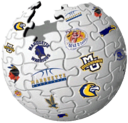Photo by Ebony Cox | jsonline.com
Ultimately, the biggest lesson for any bracketologist is the Selection Committee cannot get it wrong. We may disagree with their decisions, but when they say Marquette is headed to Indianapolis as a 2-seed in the South region, that's where they're going to end up, and it's that way for all 68 teams selected into the field.
In terms of results, Cracked Sidewalks had 67/68 teams correct, 42 teams on their exact seed line, and 61 teams within 1 line. Our unofficial Paymon score, which is the calculation Bracket Matrix uses to score bracketologists, was 346 out of 408 possible points. While it's Cracked Sidewalks' worst score since 2019, our #39 rank is the best in that time period and is in the 83rd percentile of all bracketologists.
What bracketologists try to do is project what the Selection Committee will do. We use historic precedent and contemporaneous data to come to a prediction. Over the past five tournaments, the average Paymon score has improved every year, from 337.8 in 2018 to 356.5 in 2023. Bracketologists have consistently gotten better at predicting what the Selection Committee will do, which is what makes this year so bewildering.
The winning score this year was 355, lower than the average score in 2023. The average this year was just 338.7, the lowest since 2018. So either one of two things happened, the bracketologists were drastically worse at evaluating the field, bucking a 5 year constant upward trend, or the Selection Committee seeded the field differently than past committees have. Due to a number of factors, I strongly believe the answer was the latter.
The Mountain West
One of the biggest talking points was the alleged underseeding of the Mountain West Conference. While the Mountain West earned 6 bids thanks to New Mexico winning the auto bid (they would've been out without it). Selection Committee chair Charles McClelland said "The majority of their best wins came from in conference. They did have some good wins out of conference but they didn't have those great wins." While there may be some validity to this, I reviewed the five Mountain West teams that were considered to be underseeded. There was discussion throughout the year about the Big 12 "gaming" the NET due to playing weak non-con schedules, so I compared those Mountain West teams to the Big 12 teams with the 5 worst NCSOS rankings. The comparison is based on seed given, projected seed by this year's bracketologists, estimated seed based on comparable resumes using T-Rank, and the record these teams accrued in non-conference games away from home in Quadrants 1, 2, and 3.
The Mountain West teams were underseeded by an average of 1.94 using 2024 bracketology projections and 2.24 using historic comparisons. They had an average NCSOS of 166.4 and went a combined 19-7 in meaningful non-con games away from home. The Big 12 teams were seeded exactly (0.008 disparity) by the 2024 bracketologists but were 0.94 better in seeding based on historical comparisons. They had an average NCSOS of 292.8 and went 10-8 in meaningful non-con games away from home.Quite simply, Charles McClelland's comments were either hypocrisy or a lie. The five Mountain West teams played tougher schedules in non-conference, performed better against those schedules, and were seeded on average 2 lines worse than they deserved while the five Big 12 teams played weaker non-con schedules, performed worse against them, and were seeded on average 1 line better than they deserved. The same Big 12 schools that also got the majority of their wins from in their conference. Blatant hypocrisy.
Indiana State
With all the bid thieves, someone deserving was going to be left out, but even with all that Indiana State should've been in ahead of Virginia, in my opinion. The Sycamores rank #28 in NET and are now the highest NET team to ever be left out of the field. While it is not a primary selection criteria, it is still the NCAA's own metric and no team inside the top-31 had ever been left out before. Further, they were top-45 in every team sheet metric; no team in the top-45 of all metrics had ever been left out.
It's late, and any more feels like it would just be sour grapes, but I do think this tournament highlights two things. First, the Selection Committee should be made up of people who come in understanding the bracketing process and basketball people. Simply being an athletic director or administrator does not give one comprehensive knowledge of college basketball. Second, I would again say this is time for NCAA expansion to 80 teams. This was a strong bubble. Beyond the First Four Out, St. John's, Providence, Ohio State, and Kansas State all had resumes that compared favorably to teams selected in the past. It wouldn't have been difficult to add those eight teams and another four more. South Florida, Richmond, Memphis, Ole Miss, Cincinnati, Syracuse, Wake Forest, and Princeton would all be compelling teams for the expanded Field of 80 Cracked Sidewalks posited in the past.
Here's to another great year of brackets and many more in the future.



No comments:
Post a Comment